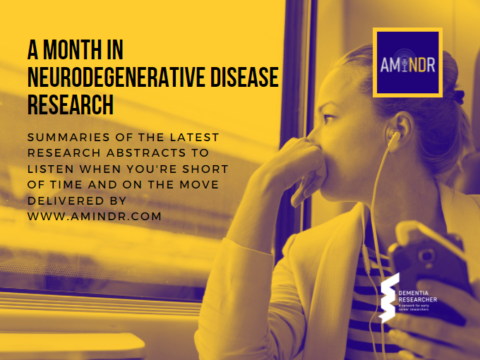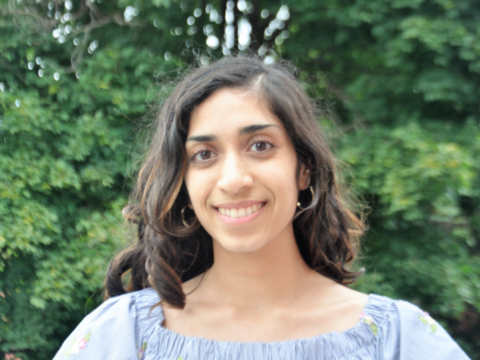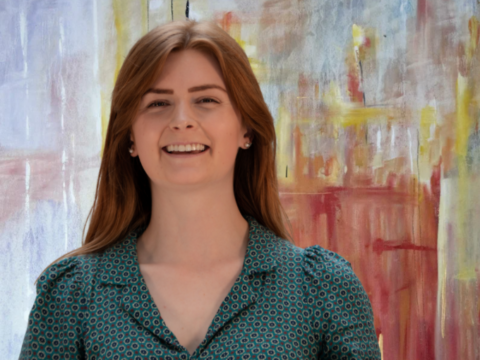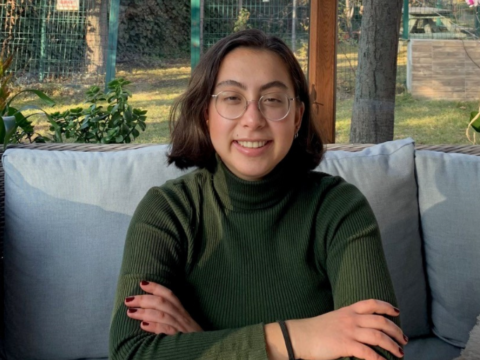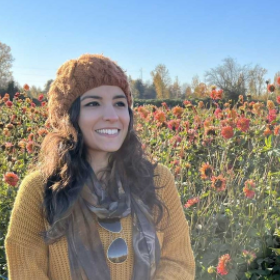
Sarah Louadi
Name:
Sarah Louadi
Job title:
Medical Student (2024 graduating class), Cofounder and External Manager at AMiNDR Podcast
Place of work / study:
The University of British Columbia
Area of Research:
During my time in the Cashman Lab at the University of British Columbia (UBC), I studied Amyloid-beta aggregation in vitro using oligomer-specific antibodies, as well as amyloid-beta oligomer effects on microglia. Specifically, I was interested in how neuroinflammation contributes to Alzheimer’s disease pathology. After finishing my master’s thesis in 2018, I worked as a Research Technician, and screened antibodies against misfolded TDP-43 in vitro for ALS research. I then moved on to a more clinical path and started medical school at UBC Vancouver in 2020.
My main link to research now is through the AMiNDR Podcast (A Month in Neurodegenerative Disease Research), where I am pursuing my interest in knowledge dissemination.
During my graduate studies, I had such trouble keeping up with the new literature on Alzheimer’s disease that I always felt behind. Have you heard of the imposter syndrome? I lived with it, every day. I felt the need for a tool that would provide me with flash news in my field, very much like we get flash news on world affairs. And with podcasts becoming increasingly popular and accessible, what batter tool to use to achieve this purpose?
Ellen Koch, Elyn Rowe, Dr. Naila Kulhmann, and myself joined forces and officially launched the AMiNDR Podcast in June 2020.
As one of the Directors, I now wear different hats to make sure our initiative continues to grow. For example, I periodically assess our program, our listeners’ satisfaction, our social media reach, and team dynamics, all important elements of quality improvement for a sustainable science communication initiative.
I also manage external matters. I take care of advertising, establishing partnerships, sponsorship, and recruitment. I also help internally with a bit of everything: sorting abstracts into categories, scripting and hosting episodes, editing.
Hosting the episodes on Clinical Assessment in Alzheimer’s disease helps me keep up with the new assessment tools and variable relevant to diagnostics and prognostics, which is becoming more and more relevant to my clinical journey.
How is your work funded?
The Canadian Consortium on Neurodegeneration in Aging (CCNA) is our one sponsor at AMiNDR Podcast.
Tell us a little about yourself:
I am passionate about science communication and improving accessibility, and I love to explore new ways to achieve these goals (especially if they are interdisciplinary): painting, dancing, writing, and now with the AMiNDR podcast. This is somewhat of a new endeavour for me with a unique set of challenges, and I am excited to learn and grow through it.
If you are interested, you can check out my previous involvement with Voirelia: A Dance, Psychology, and Philosophy Hub (https://voirelia.com/events-projects/)
I enjoy dancing, reading fantasy, playing video/board games, watching period drama, travelling, hiking, and conversing about social issues and politics. I identify as a global citizen, having lived in Tunisia and Canada, with brief stays in Lebanon and the UK.
Tell us a fun fact about yourself:
I collect bookmarks from places I visit.
Why did you choose to work in dementia?
My involvement in dementia research was born of both a personal and academic interest.
I fell in love with Psychology and Philosophy in middle school when I read a book that changed my life: “Sophie’s World” by Jostein Gaarder. This very cool introduction to the history of Philosophy kindled a deep curiosity for anything related to the mind and to the brain. This interested was heightened by witnessing my dear grandfather live with Alzheimer’s disease, a struggle he carried for over a decade and affected all our family.
I knew then that I would dedicate my life to this area of science and endeavoured to pursue this passion in university. I found my courses in Psychology fascinating, but was also drawn to Immunology and Biology, and sought an opportunity to reconcile them through a Bachelor in Integrated Science. I found the answer in a paper by McGeer & McGeer, from 1995, on the inflammatory hypothesis in Alzheimer’s disease, and boom. There it was. The link! Microglia soon became my favourite cell.
The more I read on the matter, the more support I found for a role for neuroinflammation in neurodegeneration and was very fortunate to find support for this interest in the Cashman Lab.
What single piece of advice would you give to an early career researcher?
I was very afraid to take the reins on my project early on, which led to considerable delays in my research. If I could go back in time, I would tell myself not to shy away from taking initiative in my role, to approach my supervisor with ideas, to ask for what I need whether be a commercial kit that would save me weeks of work or time off for vacation.
What book are you reading right now? Would you recommend it?
I am slowly reading “Cutting Remarks: Insights and Recollections of a Surgeon” by Sidney Schwab. While I will likely not engage in a surgical specialty, I appreciate the author’s honest reflections on his years of training, and more specifically his interactions with colleagues, mentors, and patients. I thought some of the challenges may translate to other areas of medicine too, especially ones with gruelling hours on the ward.
I have not finished it yet, but I would recommend it to anyone interested in a career in medicine (not just surgery).
Can we find you on Twitter & Instagram?
Not personally, but be sure to follow AMiNDR – Follow @AMiNDR_podcast

 Print This Post
Print This Post